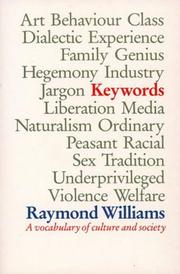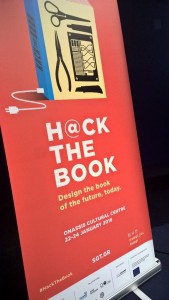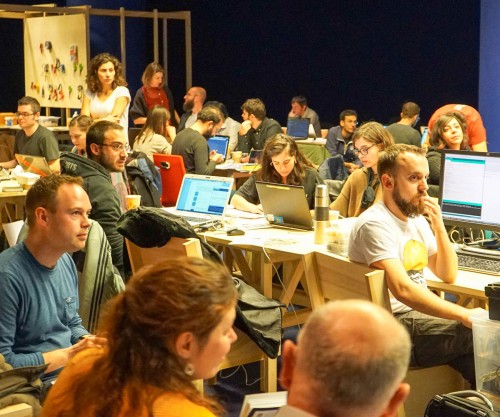March 8, 2016
On ‘hacking’ ethos, hackathons and digital scholarship

Have you ever experienced, after a concert, a movie or an event, to become somehow obsessed with the person or the topic? This happened to me last month, after joining the ‘Hack the Book’ event, which I will describe later on. So, what does 'hacking' actually mean for a Digital Humanities practitioner? - that was the question.
As Ben Yagoda reminds us in his short history of hack, the verb ‘hack’ first appeared in English around 1200 AD. Then, it meant to “cut with heavy blows in an irregular or random fashion”. In the second half of the 20th century, however, the word acquired new meaning: it now had technological connotations that link it to commands and shortcuts with which to modify the performance of a computer’s operating system or applications. Indeed, ‘hack’ often sounds malicious, as Yagoda notices, and it is in this associative framework of virtual violence that hackers and hacking have gradually formed a subculture whose common goal is to break into computer systems and security, gaining access to computer networks, legally or otherwise, and discovering sensitive information.
While there is a growing public discussion and wealth of literature and pop culture manifestations on the matter of “hacking” from a networks’ security perspective, the focus of the discussion is now moving away from reports of malicious personal attacks and towards more community-based narratives of (h)activism and radicalism (e.g. Anonymous). Even more, as linguist Geoff Nunberg points out, “ ‘hacker’ could be read and used as an honorific for an ingenious programmer, and can be extended to other things — for example, startups describe their marketing people as ‘growth hackers’.” From the ‘Life hacks lessons for the Stylist woman’ and Ikea Hackers to ‘Growth Hacking Your Career’ sessions, the semantics of ‘hacking’ in our lives and culture go far beyond exploratory programming.

‘Hacking’ indeed populates everyday discourse, claiming its own place in the cultural history narratives of our modern software-driven society, and should even deserve an entry in a future updated version of Raymond Williams’s monumental Keywords, A vocabulary of culture and society [1], which aims to “set the standard for how we understand and use the language of culture and society”.Let us, for the moment, imagine what this new Keywords’ entry would be, by mapping the evolution of the meaning of ‘hack’. In order to do this, we need to focus on two aspects: on the one hand, hacking is identified as an inherently active endeavour, typically associated with innovative tricks, shortcuts or skills, while on the other hand it is linked with subversive practices and a radical politically-driven ethos. In Steven Levy’s words, “hackers believe that essential lessons can be learned by taking things apart, seeing how they work and using this knowledge to create new and more interesting things” (22), thus introducing a radical rupture with the rationalised, discursive habits of human thought and everyday practice. Not surprisingly, these two axioms also dominate Digital Humanities, which is an evolving scholarly discipline and as a decentralized community of practice. Digital Humanities are rooted in a ‘hands-on imperative’ or, as Stephen Ramsay eloquently terms it, in ‘building’: “Building is, for us, a new kind of hermeneutic — one that is quite a bit more radical than taking the traditional methods of humanistic inquiry and applying them to digital objects”. From distant reading, data mining, encoding, text and network analysis, visualization, to tool and database design and so on, all the ‘technai’ of and our everyday practices in Digital Humanities attempt to challenge the value-laden dichotomy of mind and hand, thought and practice. For instance, (conceptual) modelling, as a heuristic process through which ‘to know how we know what we know’ and as the defining characteristic of Digital Humanities, grounds itself in such a deconstructive strategy of understanding a function or an object by taking things apart. It is within such a DIY-ethos that TEI was initially developed.
Digital Humanities and digital scholarship are often discussed within a radical narrative in academia and traditional humanistic inquiry. To name a few examples: this equal commitment to “talk and grok, hack and yack” is often seen, as Benthany Nowviskie states, as an anomaly “for people whose productivity and performance is rarely judged on les mots justes”. In 2010, Tom Scheinfeldt and Dan Cohen put forward a ‘hacking experiment’ (to be crowdsource-style written in a week by DH folks) for an edited book entitled Hacking the Academy, attempting to map the shifting practices in scholarly communication “now that every aspect of scholarly infrastructure is being questioned, and even more importantly, being “hacked”. Melissa Terras has also discussed how pursuing a Digital Humanities career can be seen as an exercise “in hackerdom” within academia.
Before joining DiXiT, I was familiar with the notion of ‘hacking’ in my everyday scholarly life, but it was only after joining DiXiT-related hackathons that I officially began my service in ‘hacking’; because in DiXiT we overall love ‘hacking’ events, that’s true ;) ‘Hackathon’ is a portmanteau derived from “hacking” and “marathon” and initially describes a gathering in which participants collaborate intensively around a problem or idea, suggesting scenarios and solutions and then working towards their implementation, typically through coding. Hackathons can last anywhere from several hours to several days, during which time eating and sleeping are not to be taken for granted. Hackathons usually result in a new tool, app or a technical solution but, most importantly, hackathons are spaces for collaboration with like-minded people, having fun through learning, building and failing and creatively challenging the limits of what is already known.
I can very clearly recall my inaugural experience as an attendee of the TEI hackathon at DH2014, and, once I joined DiXiT, as a participant in the eXist-DB & XQuery hackathon-style summer school at Maynooth University as well as in the TEI Simple hackathon at TEI2015. In all these hackathons, we tried to push the limits of certain technical frameworks used in digital scholarly editing. In them, I - caffeine-fuelled - collaborated intensively with great colleagues, learned and failed several times, struggled with code snippets on my laptop screen, and overall I had a great time.
Last month, I had the fantastic opportunity to participate in another, fascinating hackathon. Hack the Book Festival was the third hack event of the Europeana Space Project and it was organized and hosted by the Onassis Cultural Centre (OCC) in Athens on 21-23 January. The initial call concerned exploring the open and hybrid publishing phase of the book, addressing issues such as reimagining the book as an evolving, visual and open medium, currently moving to a hybrid, so-called “phygital” phase. The participants had to redefine the book by working around four different challenges: Book Design, Open Hardware, API and (re)use of open cultural heritage content from Europeana, and finally entrepreneurship and sustainability.

This event’s hacking dimensions exceeded exploratory programming and coding skills: participants had to create a robust product concept that would answer these four challenges and additionally bring value to the cultural heritage sector, show strong business potential & job creation objectives and manifest innovation, quality & uniqueness. For such an undertaking, it was necessary to create teams with a diverse set of skills, ranging from book design, desktop fabrication, human-computer interaction, content curation editing, knowledge architecture to business modelling. Designers, artists, publishers, programmers, content creators and entrepreneurs, we were all finally there, in a two-day inspiring hackathon on creative programming, content development, breakthrough design and entrepreneurial innovation for the future of the book.
Needless to say, I am very excited that my team was among the three winners and that our concept/product vivl.io is now on its way to REMIX intensive Business Model Workshop at London, in which one winner will be chosen for incubation. Briefly, our project consists of a multi-dimensional book-in-a-box with an actual high-quality printed book and an affordable Rasberry Pi. The latter comes with an SD card preloaded with the ‘book in browser’ files, a born-digital resource based on the work encoded (TEI) alongside semantic, intertextual data and enhanced with cultural heritage content. Additionally, it includes an Arduino microcontroller containing educational scenarios, interactive and Minecraft:Pi activities etc., generated from the encoded text. The product is designed for scalable production, ensuring an affordable price and potential for wide dissemination.
Hack the Book provided a renewed ‘hacking approach’ also to my DiXiT research towards publishing models for digital editions through its very inception and its actual deliverables: digital technology introduces a (r)evolution not just in the way we create and use the traditional material apparatuses of knowledge transfer, such as a book, but more importantly by radically revisiting the practices and procedures surrounding their conception and development. We need to reimagine and create prototypes and models that innovate our existing patterns of ‘publishing’ and ‘product/content’. How could we expand the notion of the one-piece product to that of a multi-asset knowledge experience? How might we embark on a holistic approach to knowledge creation, from the concept idea, content curation, editing, design, tools and technologies, to resources, market/users’ needs, value proposition, scalability and viability in the long-term? Could we ever imagine a digital edition as a startup with innovative and entrepreneurial mindset in a process of development, with potential risks but also high growth and value potential, while keeping its high quality scholarly standards?
I am privileged enough to continue my hacking meditation while being at Kings Digital Lab for the next 3 months for my secondment. Kings Digital Lab is a new vibrant cross-faculty (Arts & Humanities) unit, aiming to be “part digital project space, part research lab, part hacker zone”, by combining technical expertise, research excellence and a culture of innovation and experimentation in digital scholarship. My focus will be on sustainability and archiving planning for digital editing projects and how this might be interpreted and integrated within a holistic and dynamic development approach. There is certainly enough room for ‘hacking’ during my research but I just been informed that a new Rasberry Pi has arrived at the Lab !
Featured photo : courtesy Fred Truyen
references
[1] What I am actually thinking here is more of an update of the existing revision of Williams’ work: in 2005 Grossberg, Bennett and Morris edited New Keywords: A Revised Vocabulary of Culture and Society, an attempt to update Williams’ text.
[originally published in DiXiT Blog]
